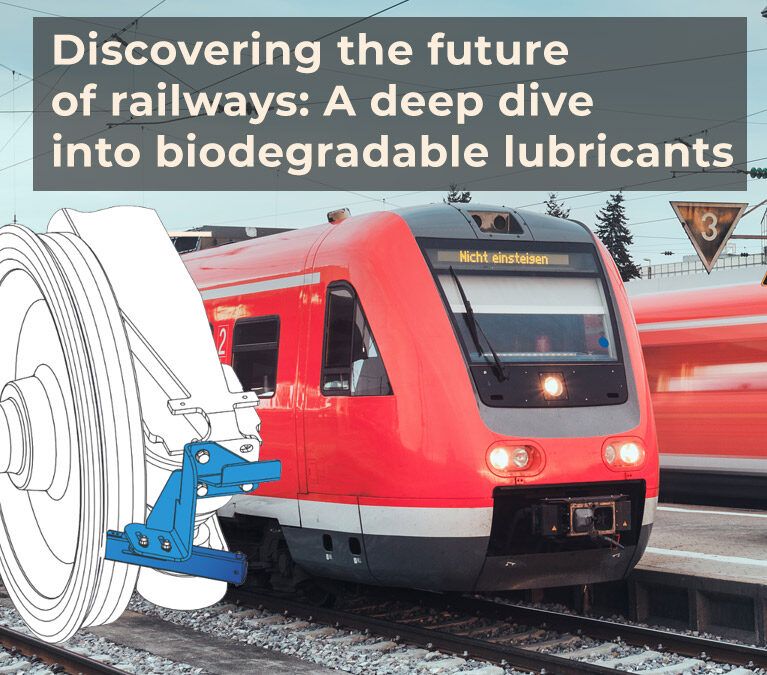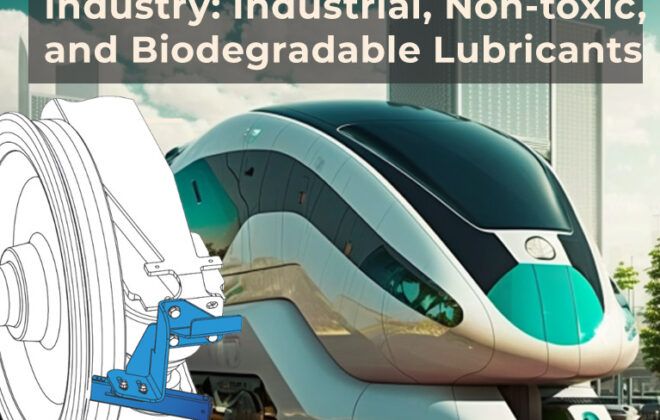Biodegradable Lubricants, a deep dive into the future
Discovering the Future of Railways: A Deep Dive into Biodegradable Lubricants
The railway industry, a vital backbone of global transportation systems, is accelerating its move towards sustainable and eco-friendly practices. One significant aspect of this transition is the adoption of biodegradable lubricants. These environmentally friendly alternatives to conventional lubricants are game changers, reducing ecological impact while maintaining peak performance.
Understanding Biodegradable Lubricants: A Green Innovation
Biodegradable lubricants, also referred to as bio-lubricants, are derived from renewable resources like plant or animal fats. These lubricants are designed to degrade naturally and quickly when exposed to environmental conditions, minimizing potential harm to the environment.
Bio-lubricants hold several significant benefits over their mineral-based counterparts. First, they have high biodegradability and low eco-toxicity, which means they leave a significantly smaller environmental footprint. Second, their superior lubrication properties, including high viscosity index, high flash point, and low evaporation loss, make them highly effective in a variety of applications.
The Necessity of Lubrication in the Railway Industry
In the railway industry, lubrication is crucial. Lubricants are used extensively in various applications such as axle boxes, traction motors, gearboxes, and braking systems, among others. They reduce friction between moving parts, enhancing performance, increasing energy efficiency, and extending the life of railway components.
However, conventional lubricants can have significant environmental implications. They often contain hazardous substances, which, if leaked or disposed of improperly, can harm ecosystems. With tightening environmental regulations and a growing emphasis on corporate social responsibility, the railway industry is under increasing pressure to adopt greener alternatives – and this is where biodegradable lubricants come in.
Biodegradable Lubricants: A Sustainable Solution for the Railway Industry
Biodegradable lubricants are emerging as an ideal solution to the environmental challenges posed by conventional lubricants in the railway industry. They offer equivalent, if not superior, technical performance, and crucially, they significantly reduce environmental risks.
Railway operators using biodegradable lubricants can reduce soil and water pollution caused by spills or leaks during operations. In the event of a spill, these lubricants degrade rapidly, reducing the risk of long-term environmental damage.
Adopting biodegradable lubricants also aligns with global efforts to combat climate change and supports the achievement of sustainability goals. They allow railway operators to demonstrate their commitment to environmentally friendly practices, enhancing their corporate image and potentially providing a competitive advantage.
Overcoming Challenges to Implement Biodegradable Lubricants in the Railway Industry
While biodegradable lubricants present numerous benefits, there are challenges to their widespread implementation in the railway industry. These include higher costs compared to conventional lubricants, limited awareness about their benefits, and technical issues related to their use in certain applications.
To overcome these hurdles, there is a need for ongoing research and development to improve the performance and cost-effectiveness of biodegradable lubricants. Education and awareness campaigns can help stakeholders understand the long-term benefits of these green alternatives. Industry-wide collaboration and government support through policies and regulations could also encourage more widespread adoption of these environmentally friendly lubricants.
In conclusion, biodegradable lubricants offer a promising avenue towards more sustainable practices in the railway industry. While there are challenges to overcome, the potential benefits to both the industry and the environment make them a compelling option for the future. As we strive towards a greener planet, the adoption of sustainable technologies such as these will be key in making a lasting impact.
Recent Posts
Recent Comments
Archives
Categories
Categories
- Blog articles (4)
- TARGI (1)
- Uncategorized (8)





